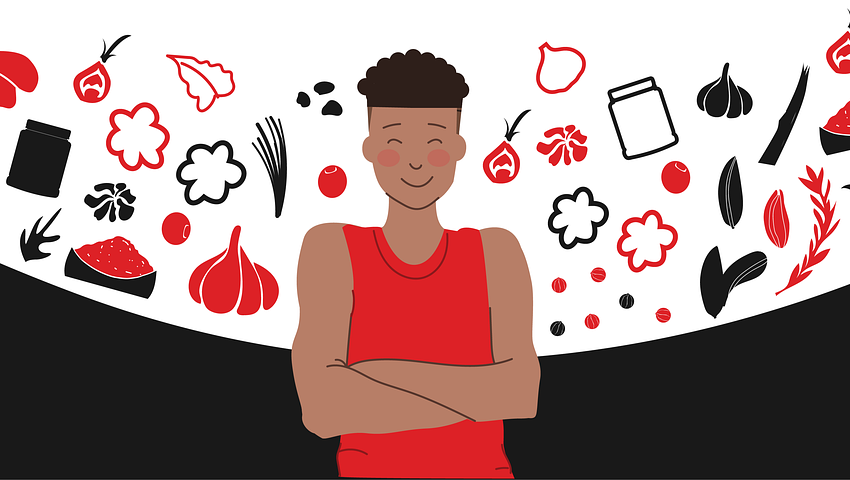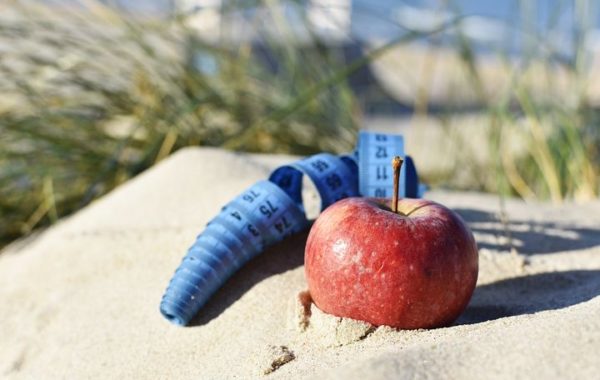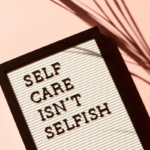The Importance of a Balanced Diet for a Healthier Life

Introduction
Do you know that poor diets are responsible for more deaths than any other risk factors globally, including smoking? That’s a shocking statistic that highlights just how crucial it is to pay attention to what we eat. A balanced diet is essential for good health, yet so many of us struggle to incorporate it into our daily lives.
A balanced diet refers to consuming a variety of foods from different food groups in appropriate portions to ensure that we’re getting all the essential nutrients our body needs. It’s a fundamental aspect of good nutrition and is critical for maintaining good health and preventing chronic diseases.
In this article, we will explore the importance of a balanced diet for a healthier life. We will discuss the benefits of incorporating a balanced diet into your daily routine and provide some tips on how to make healthy eating a part of your lifestyle. So, let’s dive in and discover the power of a balanced diet!
Components of a Balanced Diet
A balanced diet consists of a variety of different food groups, including fruits and vegetables, grains, protein sources, and dairy products. It’s important to consume a variety of foods from each group to ensure that you’re getting all the essential nutrients your body needs.
- Fruits and vegetables: These are a great source of vitamins, minerals, and fiber. They should make up about half of your plate at each meal. Aim for at least five servings of fruits and vegetables per day.
- Grains: Whole grains, such as brown rice, quinoa, and whole-wheat bread, are a good source of fiber, vitamins, and minerals. Aim for six to eight servings of grains per day.
- Protein sources: This includes meat, poultry, fish, beans, nuts, and seeds. Choose lean sources of protein and try to include plant-based sources of protein in your diet. Aim for two to three servings of protein per day.
- Dairy products (or non-dairy alternatives): Dairy products are a good source of calcium, which is important for strong bones. If you choose non-dairy alternatives, make sure they are fortified with calcium. Aim for two to three servings of dairy or non-dairy alternatives per day.
Benefits of a Balanced Diet

Following a balanced diet has numerous health benefits. It can help to:
- Maintain a healthy weight: Eating a balanced diet can help to control weight gain and reduce the risk of obesity. Consuming a variety of nutrient-dense foods can also help you feel fuller for longer, reducing the likelihood of overeating.
- Reduce the risk of chronic diseases: A balanced diet can help to prevent chronic diseases such as heart disease, diabetes, and cancer. Eating a variety of fruits, vegetables, whole grains, and lean protein sources can help to provide the nutrients and antioxidants needed to reduce inflammation and prevent chronic disease.
- Improve digestion and bowel movements: Eating a diet rich in fiber can help to promote regular bowel movements and reduce the risk of constipation. It can also help to promote healthy gut bacteria, which is important for overall health.
- Boost energy levels and improve mood: Consuming a variety of foods can help to provide the energy and nutrients needed for physical and mental performance. Eating a balanced diet can also help to stabilize blood sugar levels, reducing the likelihood of energy crashes and mood swings.
Check out the The Smoothie Diet: 21 Day Rapid Weight Loss Program here
Tips for Achieving a Balanced Diet
Here are some tips to help you incorporate a balanced diet into your daily routine:
- Plan meals in advance: Take some time to plan your meals for the week to ensure that you’re getting a variety of foods from each group.
- Prepare healthy snacks: Keep healthy snacks on hand, such as fresh fruit, nuts, or hummus and veggies, to help curb hunger between meals.
- Read nutrition labels: When grocery shopping, read nutrition labels to ensure that you’re choosing healthy options that are low in saturated fat, added sugars, and sodium.
- Try new recipes: Experiment with new recipes and ingredients to make your meals more interesting and enjoyable.
- Seek additional resources: There are many resources available, such as books, websites, and apps, that can provide additional information and support for healthy eating.
How Do You Eat A Balanced Diet Everyday?

What Is The Healthiest Everyday Diet?
FAQs
Q: What is a balanced diet?
A: A balanced diet consists of a variety of foods from different food groups, including fruits and vegetables, grains, protein sources, and dairy products (or non-dairy alternatives). It’s important to consume these foods in appropriate portions to ensure that you’re getting all the essential nutrients your body needs.
Q: How can I incorporate a balanced diet into my busy lifestyle?
A: Planning ahead is key to incorporating a balanced diet into a busy lifestyle. Take some time to plan your meals for the week and prepare healthy snacks to keep on hand. When grocery shopping, read nutrition labels to choose healthy options that are low in saturated fat, added sugars, and sodium. Try to find quick and easy recipes that incorporate a variety of healthy ingredients, and consider using resources such as books, websites, and apps that can provide additional information and support for healthy eating.
Q: Can a balanced diet help with weight loss?
A: Yes, a balanced diet can help with weight loss by reducing the likelihood of overeating and controlling weight gain. Eating a variety of nutrient-dense foods can help you feel fuller for longer, reducing the likelihood of snacking and overeating. Additionally, incorporating physical activity into your routine can also help with weight loss and overall health.
Conclusion
In conclusion, a balanced diet is critical for overall health and well-being. By consuming a variety of foods from different food groups, we can provide our bodies with the essential nutrients they need to function properly and reduce the risk of chronic diseases. By making small changes to our daily eating habits, such as meal planning and portion control, we can take steps towards a healthier lifestyle.
To get started on your journey towards a balanced diet, consider incorporating more fruits and vegetables into your meals, choosing whole grains over refined grains, opting for lean proteins such as fish, chicken, and legumes, and limiting your intake of added sugars, saturated and trans fats, and sodium. Meal planning and prepping can also help make healthy eating more convenient and accessible.
By prioritizing a balanced diet, we can not only improve our physical health but also enhance our mental well-being and overall quality of life. So, let’s take action today and make healthy eating a part of our everyday routine!



